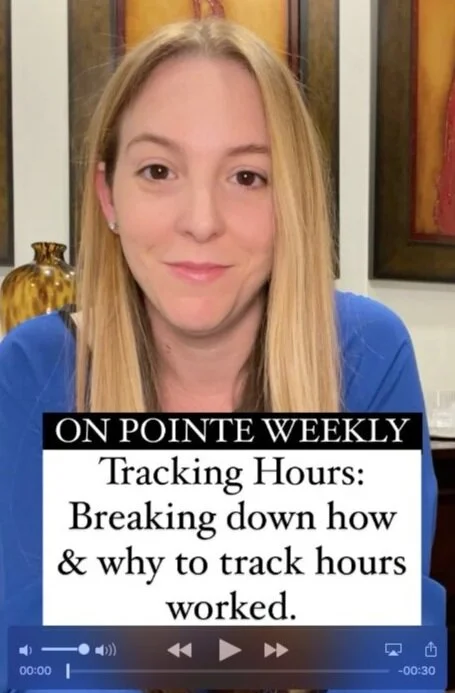Knowing Your Worth: How, What & Why to Track the Hours You Work
Q. Should I track the hours I'm working? If so, how do I go about doing this?
The easy answer is, YES! You should track everything you're doing. Now for the hard, or rather, more difficult part of this question, let's go through WHAT to track and HOW to go about this.
...
Tracking hours is an imperative task for any service-based industry. Why? Because it's what determines if you're following the scope of a contract and if you're being fairly compensated. It also benefits the side receiving the work as it determines if they're receiving what they've paid for.
Now that this is clear, let's talk about WHAT to track.
Honestly...everything!
If you are providing a service for payment, track every minute of your time. This includes but is not limited to:
Administrative Tasks (i.e. invoicing, scheduling calendar invites, etc.)
Research
Client Communications
Content Planning & Development
Anything that falls under the scope of doing something for the client
I can't tell you how many times I've seen someone write off the time they're on the phone with a client either for a weekly call, for a quick catch up or to address a question. Based on what I've heard, this time gets written off because it's not producing tangible work. While I understand where that idea is coming from, it's not accurate. Your time and expertise are of value. Having a conversation with a client, even if to clarify something you are unsure about leads to tangible results and work product. It's part of the process and therefore should get tracked.
Now, let's move to HOW to track.
At this point, I have used a variety of software systems to track hours. Some, are good and allow you to track hours by team or budget. They allow you to see patterns and efficiencies. They allow you to allocate time based on rate. Others, aren't as great and are just systems that input hours but don't make the process any easier or provide any analytics.
If you have a large team, have the available budget to spend or need a platform that provides you analytics, exploring a paid for option is a great route (and I have recommendations for you).
But, if you're a freelancer, a solopreneur, a small team or simply just don't want to pay for another platform, I'm here to help! A formatted Excel sheet is really all you need.
Identify what you're tracking
Create a monthly template
Input the formulas to keep track of hours on a daily, weekly and monthly basis
Or better yet, take advantage of my template which I'm giving you for FREE and which you can download by clicking here. Included is a sample tab of how to use the template and what to keep in mind. Also included is the March template made and ready to use, just for you!
...
Tracking your hours is the first step in understanding how long tasks take you. It helps you better estimate your time, quote projects and leads to an understanding of your worth and give you room to evaluate your compensation!
...
If you have more questions or need additional support, let me know, my inbox is always open. You can reach me at Cristy@PointeConnect.com.
Cheers to being on pointe!

